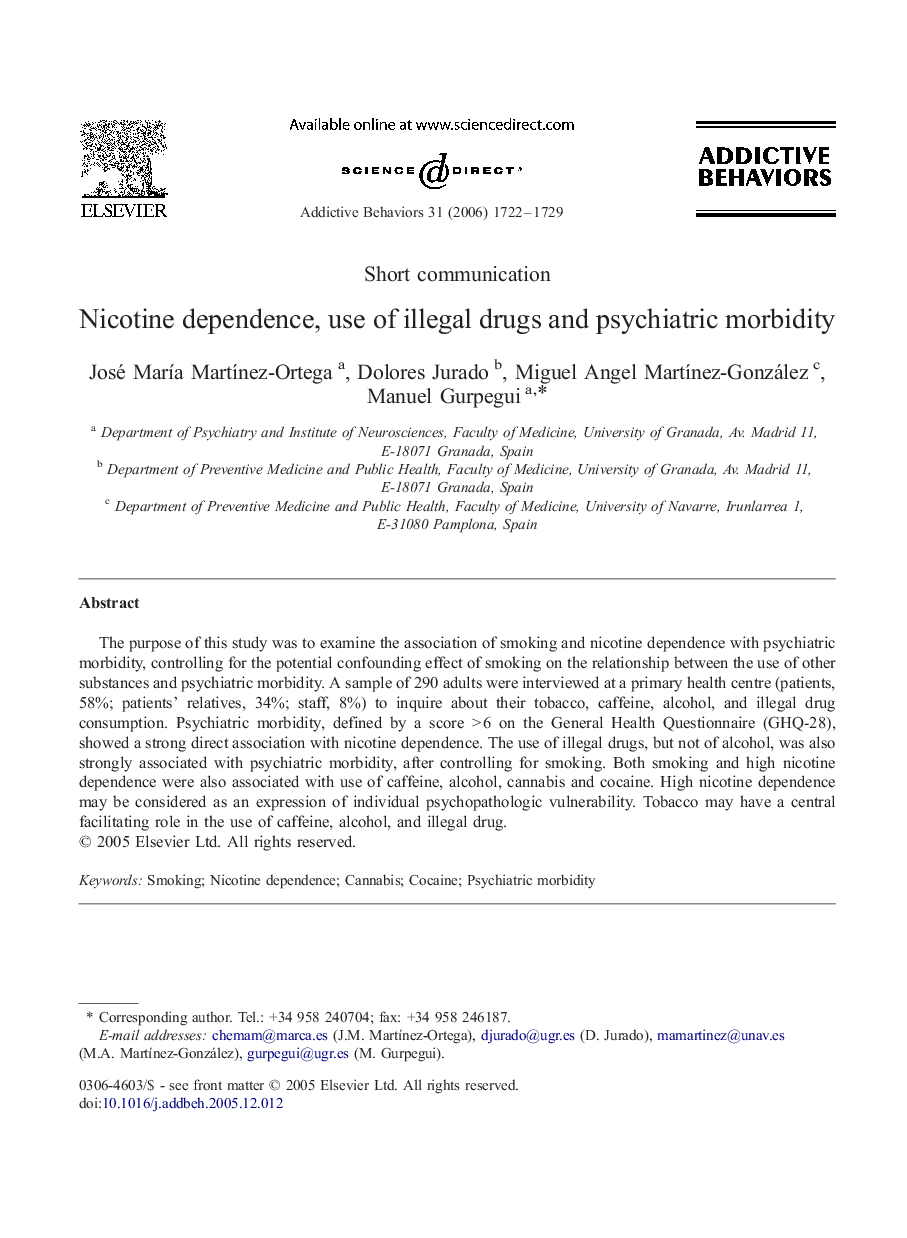| Article ID | Journal | Published Year | Pages | File Type |
|---|---|---|---|---|
| 899915 | Addictive Behaviors | 2006 | 8 Pages |
The purpose of this study was to examine the association of smoking and nicotine dependence with psychiatric morbidity, controlling for the potential confounding effect of smoking on the relationship between the use of other substances and psychiatric morbidity. A sample of 290 adults were interviewed at a primary health centre (patients, 58%; patients' relatives, 34%; staff, 8%) to inquire about their tobacco, caffeine, alcohol, and illegal drug consumption. Psychiatric morbidity, defined by a score > 6 on the General Health Questionnaire (GHQ-28), showed a strong direct association with nicotine dependence. The use of illegal drugs, but not of alcohol, was also strongly associated with psychiatric morbidity, after controlling for smoking. Both smoking and high nicotine dependence were also associated with use of caffeine, alcohol, cannabis and cocaine. High nicotine dependence may be considered as an expression of individual psychopathologic vulnerability. Tobacco may have a central facilitating role in the use of caffeine, alcohol, and illegal drug.
